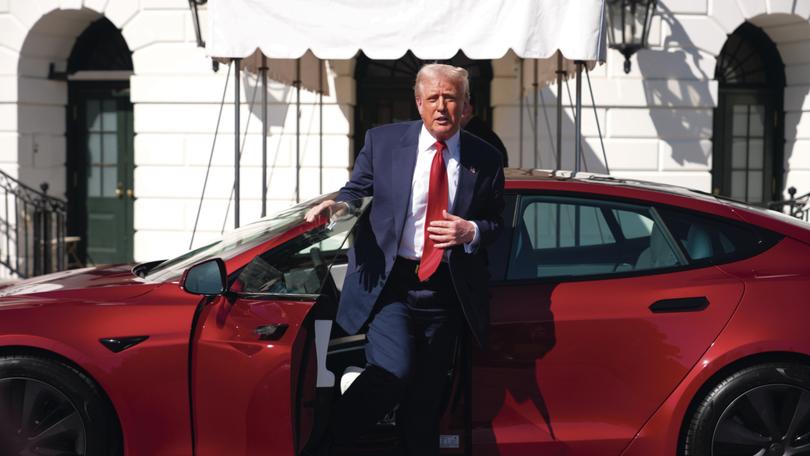Trump trade war: ASX200 sheds $40bn ahead of tariff call
Share markets took a battering on Monday ahead of major economic news this week when the US reveals further tariffs and the Reserve Bank inks its next decision on interest rates.

Share markets took a battering on Monday ahead of major economic news this week when the US reveals further tariffs and the Reserve Bank inks its next decision on interest rates.
The ASX200 dropped 1.7 per cent to 7,843 points — losing about $40 billion of value. The index has fallen about 8 per cent since peaking in February amid chaos over a looming trade war.
Financial service Bloomberg declared the March quarter had been the worst three months since June 2022, when interest rates across the world were starting to rapidly rise in response to inflation.
Sign up to The Nightly's newsletters.
Get the first look at the digital newspaper, curated daily stories and breaking headlines delivered to your inbox.
By continuing you agree to our Terms and Privacy Policy.AMP deputy chief economist Diana Mousina said markets could slide more than 15 per cent thanks to the ongoing risk of a recession in the US, geopolitical risks, and the looming trade war.
Miners were hardest hit, with Rio Tinto falling 4 per cent to $116.40 and BHP 3.4 per cent lower at $38.34. Every sector was in the red.
The dip followed American markets on Friday, when the S&P 500 declined nearly 2 per cent amid concerns US inflation pressure was starting to return.
Ms Mousina on Saturday predicted a rough week ahead for shares.
“Financial markets are sensitive to news around tariffs, so it’s likely that shares will have more downside,” she said.
President Donald Trump is set to unveil a fresh round of import taxes as he amps up an ongoing trade war on Wednesday, US time.
Ms Mousina said Mr Trump may postpone sector-specific taxes but would announce reciprocal tariffs — which he argues would be a response to trade restrictions faced by the US.
ANZ senior international economist Brian Martin said “the US economy is not taking this well”.
“The tariff impact is now beginning to show up in weaker plans to buy cars, to buy homes, or move home,” he said.
“That could have a material impact on the economy.”
The new import taxes will leave American consumers paying more for goods and services, likely including cars, medicines and agricultural products.
That will add to inflation pressure and slow economic activity — with Reuters reporting major investment bank Goldman Sachs now expects a 35 per cent chance of a recession in the world’s largest economy.
Mr Trump’s move will come just hours after Australia’s central bank unveils its latest call on the official cash rate, after cutting by 0.25 per cent cut to 4.1 per cent in February.
The Reserve Bank’s newly-created monetary policy board meets this week for the first time and will announce its decision on Tuesday.
Investors predict a 92 per cent chance the RBA will hold, but are banking on a cut by July.
The central bank will need to balance the strong trend of moderating inflation against low unemployment of just 4.1 per cent and improving growth.
Creditorwatch chief economist Ivan Colhoun said the RBA would likely wait for quarterly inflation data later in the month. But he reckoned the chance of a cut is higher than market consensus
Mr Colhoun said a weak economy, moderating inflation, and the potential for damage from the trade war all added to the case for for a second dose of interest rate relief.
The RBA lowered the cash rate at the February meeting but governor Michele Bullock warned borrowers not to bank on further moves.
“Communication was poor by the Board and RBA Governor and likely means the chances of a further interest rate cut at tomorrow’s meeting is significantly under-priced by the markets,” Mr Colhoun said.
“What the Board was trying to say was three to four interest rate cuts by the middle of 2026, as was priced at the time, was not consistent with a 2.5 per cent inflation result.”
Yet the RBA will also need to consider the ongoing Federal Election, called last Friday for 3 May.
Originally published on The Nightly
